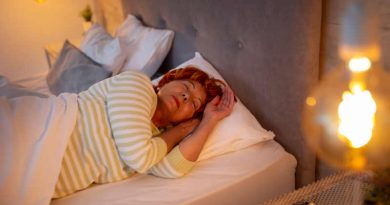
If you have ever had a poor night’s sleep, you certainly know how much your lack of sleep can affect your mental capabilities the next day. If you have missed some of your sleep for several nights in a row, your ability to recall things may have been limited, you may have had a hard time pulling up certain words from your mind and your critical thinking skills may have decreased. What you may not know is that sleep apnea can do some of the same things to your mind even if you believe that you are getting the correct amount of sleep each night. This is because sleep apnea decreases the amount of oxygen going to your brain.
According to the Journal of the American Geriatrics Society, current research shows that obstructive sleep apnea can lead to memory issues, difficulty thinking, and decreased decision-making abilities. Such issues are commonly associated with mild cognitive impairment, often called MCI. Although MCI is certainly not the same as dementia and does not usually cause major issues with activities of daily living, it may be a stepping stone on the path to Alzheimer’s disease. Therefore, it is certainly worth your while to ask your geriatric practitioner or family practice doctor whether you could benefit from CPAP, which is a machine that provides continuous positive airway pressure while you are sleeping.
The Potential Benefits of CPAP
You may not even realize that you have obstructive sleep apnea. However, your sleeping partner may have noticed some common signs of this issue, such as loud snoring, jerking awake during the night, and extreme drowsiness in the evenings. If you feel incredibly tired in most mornings and afternoons or find yourself drifting off during the day even after you think that you have had a full night’s rest, you may not be getting the restorative sleep that you need.
If you have sleep apnea, using CPAP while sleeping could actually improve your memory now as well as in the future. According to the aforementioned study, participants with MCI who used CPAP machines enjoyed improvements in their cognitive skills, and they even felt more energized and awake during the day. On the other hand, participants who did not use CPAP suffered from further cognitive decline. While this was a small study, its results are certainly worth noting if your goal is to age gracefully.




